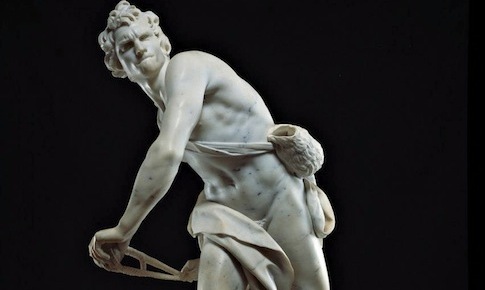The New York Review of Books, which turns 50 this year, published a review by Stephen Greenblatt and Joseph Leo Koerner of The Classical Tradition, the encyclopedic compendium of antiquity's relation to the modern world edited by Anthony Grafton, Glenn W. Most, and Salvatore Settis. Greenblatt and Koerner ask a provocative question:
What is to be made of the radical discontinuities and ruptures, the suppressions and recoveries that characterize much of the cultural inheritance of Greece and Rome? Those who uncovered a neglected trace of the past often did not recognize what they had found as their "tradition" at all. If they were able to make use of what they had come upon, it was only by inventing it anew (to "invent," after all, means literally "to come upon").
For example: The Homeric epics seem to have fallen into obscurity for a millennia. "It was not until the fifteenth century," the authors write, "that the great Florentine humanists Leonardo Bruni and Lorenzo Valla, inspired by the cultural flame that Petrarch had lit, turned to the task in earnest. Vernacular translations come still later: it was only in the seventeenth century that George Chapman brought forth a Homer in English." The "classical tradition" is neither continuous nor, as our president might say, "self-exercising." It is something that must be preserved. And if it is not preserved, the ideas it carries—such as "the Known Rules of Ancient Liberty"—will disappear.
Which of course is what has been happening:
The Latin-centered educational system remained largely intact well into the twentieth century. Its downfall in the United States may be symbolically dated to 1931, when Yale University—quickly followed by other institutions—decided to abolish the Latin requirement for all secondary school applicants. With it vanished a shared linguistic possession that had been handed down, at least among the entire educated elite, since ancient times.
The vanishing is not a matter of language alone: Latin was traditionally taught by means of ancient literary texts. This means that virtually all educated men (and women, as soon as they could gain access to what had been a male privilege) were steeped in the same books. When Shakespeare went to the King’s Grammar School in Stratford in the 1570s, he read Plautus and Terence, Virgil and Ovid, and this core curriculum remained more or less the same for centuries, through Isaac Newton and John Locke, Thomas Jefferson and Woodrow Wilson. In the latter half of the twentieth century this whole structure collapsed. As anyone who has recently set foot in a college or university knows, few students arrive with even a fragmentary knowledge of ancient literature and culture, and, what is more, only a small number of these same students graduate with any more knowledge of the classics than they brought with them.
The Classical Tradition was compiled in full awareness of this collapse.
Greenblatt and Koerner, too, are "in full awareness of this collapse:"
The Classical Tradition is an elegy both for the historical obsession with Greek and Roman antiquity and for the dream of its eternal validity. It is a "last book." Its editors know that huge collections of this kind will henceforth find their place, if anywhere, on the Web. And they know still more, that today’s humanities students prefer subjects no older than themselves.
I found this conclusion rather pathetic. There is a 2,500 year old civilizational patrimony that helped create dizzying feats of culture and science, the professors seem to say, but, hey, these kids today are more interested in Nikki Minaj and sexting, so what can you do? Hope some bright youngster will encounter the treasures of the West "on the Web."
One thing professors might do to keep the tradition alive would be actually to instruct students in the great books and discoveries that constitute it. Try assigning The Classical Tradition in class. Or maybe—this is a radical idea—design a core curriculum that requires students to read Homer and Aristotle and Epictetus as well as Machiavelli, Spinoza, and Locke. People won't appreciate "subjects no older than themselves" until they are instructed in them.
